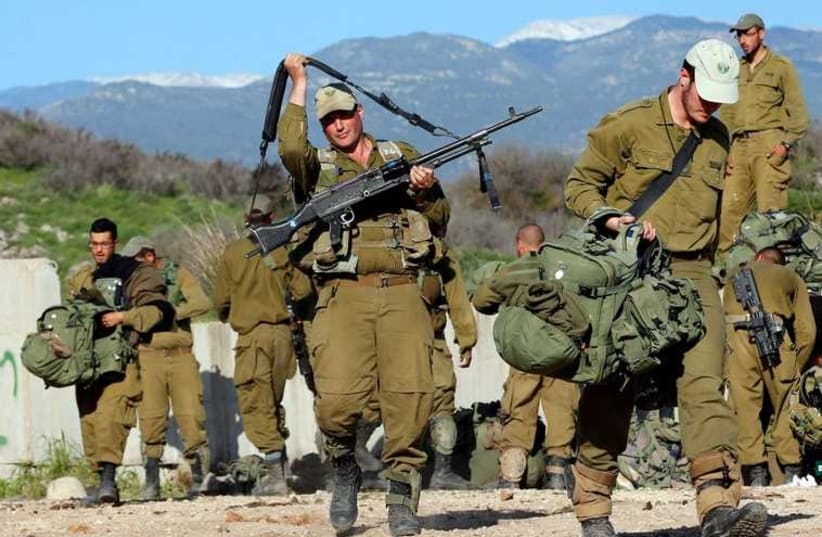“You will never really know Israel until you know what connects us all. Everyone you meet will have lost someone, or be connected to a loss in some way - a daughter, a father, a friend - stories of heartbreak and pain. We are all in this together”.
We are driving north after spending the day on the Gaza border, my friend the colonel and I. He tells me that yesterday was the Yartzeit of one of his soldiers, and tomorrow is another. Their families have become part of his family and his of theirs, not only in death but also in life, from the very moment they put on that uniform.
My day had started in Tel Aviv a few hours earlier. The colonel picked me up and we drove south, for hours, the mood changing as seamlessly as the landscape. All along he told me the history of each strip of land, breathing life into the stories I had read but not lived and told but never truly known. Suddenly he points to an unassuming bridge to our left.
“You see that? It’s called Ad Halom; this is where the Egyptians were fought off during Milkhemet Ha'atzma'ut. Ad Halom translates to "until this point”, and it may seem literal, but it means more than that to us. You’ll see. ”
And I saw.
I wish that I, within the boundaries of this page, could retell all the stories that I heard that day and all the tiny details that will stay with me forever: the woman volunteer giving a mid-day shiur to the soldiers, the beautiful flowerbed so carefully planted in-between barracks, the fallen mortars placed between computer screens as a reminder of what is at stake, or perhaps the respect with which religions and traditions mixed in the interest of duty.
But I can’t tell them all. Instead, I will tell you about Sarah.
Sarah came to Israel alone, six years ago. She left her family behind in Australia to serve in the IDF, and she ended up staying to serve, to live, and to build a life through aliya. She is an officer now, at 24 she is responsible for the 50 women in her unit and for countless others who will never know her name or be aware of the debt that they owe her. She has already served through two major military operations and made decisions that few of us have to make in a lifetime, let alone over the course of a few short years.
As she is telling her story I have to stop my impulse to hug her. Because, despite all her stripes and glory, she is still a child. She is a daughter to someone and a sister to all of us and my heart struggles to contain my admiration. When I ask her what the army has given her she smiles and says “everything”. She tells me how she used to be shy but has grown confident through her service and that the girls on the base are not merely fellow soldiers, but sisters. “I know what they go through," she said. I’ve been there, I am there, and together we help each other through it all”.
I was watching the colonel in silence as we rode back to Tel Aviv, wondering about the soldiers whose memories he would honor tomorrow. After that day, meeting these men and women and witnessing their lives even for a second, those losses seemed more real to me. I found myself imagining their stories, thinking what would have become of them and how many days of mourning the man next to me had seen through his years of service.
And I thought about Sarah, the beautiful girl with the glasses and the bright smile. She came to Israel alone, but she is far from lonely and thanks to her, neither am I. Along with countless others she makes sure that I can return home to a secured Israel in this time of need and that my children can live in the land we have prayed to return to, for so long.
It is not in my nature to feel hopeful, but hope was what I felt after spending a day with the men and women of the IDF. Dealing with danger, engaging in action and making decisions that influence all of us, these young men and women handle themselves with an unbelievable grace, humility and personal courage. Knowing that they are now 18-24 and that they will grow up to be leaders, parents and policy makers in this country allows me great comfort in an otherwise dark time.
We are not an army with a state, but a state with an army, the colonel says to me before I leave. We do not seek the fight, but we meet the challenges wherever they may come, whatever they may be. We stop the enemy at the gates, so that we may live peacefully within them.
And with that it all came together for me; from the bridge to the brigade and back again. History is alive here as we enter the future, and the values lived by these servicemen and women of today are the same values that secured that bridge 67 years ago. We are a nation of many and an army of one, and if history has taught us anything it is that one on the side of G-d is always a majority.
Annika Hernroth-Rothstein is a political adviser, writer and activist. An alumni of the Young Jewish diplomatic seminar (organized by the Mizrad Hahutz) and Tikvah seminars in NYC. She lives in Stockholm, Sweden, with her two children. Follow her on Twitter.
